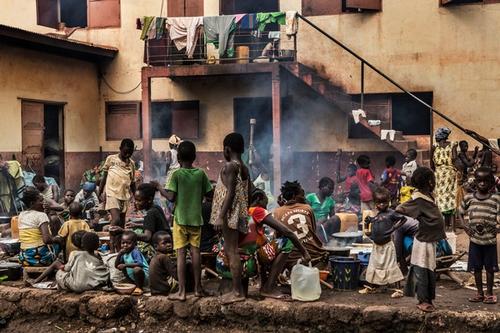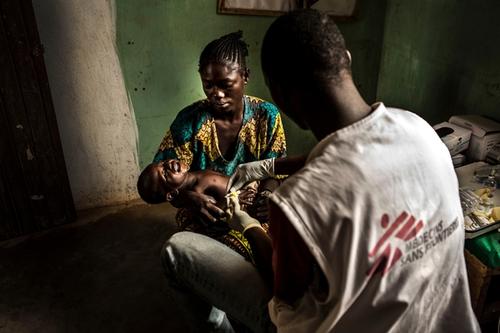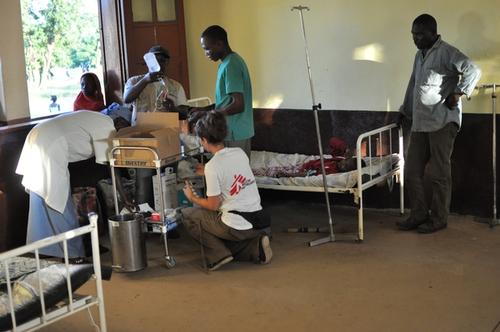MSF renews call to the international community, especially UN agencies, to increase its response to the ongoing crisis
A further wave of mass displacement in the town of Bouca, northeastern Central African Republic (CAR), following fresh clashes between reported anti-balaka elements and ex-Séléka forces, the second time in two months in this area, once again highlights the need for urgent humanitarian action in CAR said Médécins Sans Frontières (MSF) today.
“The fighting in Bouca is indicative of how horrific violence is engulfing the Central African Republic” said Sylvain Groulx, MSF Head of Mission in CAR. “We are extremely concerned about the living conditions of the displaced, whether overcrowded in churches, mosques or schools or invisible, living in the bush with no access to healthcare, food or water and threatened by epidemics. Much more needs to be done and it needs to be done now.”
The fighting in the Bouca area, which started early last week left several dead and wounded just outside the town of 15,000 people. Some of the wounded were taken to the MSF clinic, and two men in critical condition had to be transferred to the hospital in Batangafo 100 km away, one died on the way.
The recent violence follows deadly clashes in September when around 100 people were killed in attacks on civilians by armed groups, 700 houses were burnt down and thousands of people were displaced. Since then people have been living in a climate of fear and intimidation including an ultimatum being delivered last Tuesday to the community of 700 people seeking refuge in the Bouca Catholic Mission to leave the place.
"More than half of the 700 people that were seeking refuge in the Bouca Catholic Mission have fled" said Matthieu Amiraux, MSF field coordinator in Bouca "The situation is very tense, Muslim families are leaving the town in droves. All you see in town anymore is armed men.

MSF also wishes to highlight how the crisis continues in neighboring Bossangoa where an estimated 35,000 displaced people are in need of assistance. MSF started mobile clinics in mid-November to reach those hiding in the bush, where its teams continue to witness the effects of ongoing violence, and the lack of a comprehensive humanitarian aid response.
The UN estimates that 400,000 people, ten per cent of the population, have been displaced across CAR since the coup in March 2013, those displaced in Bossangoa and Bouca are more to add to this ever growing number.
MSF calls for the UN and other humanitarian agencies to increase their presence to respond to this neglected crisis. While the medical organization has had on a few occasions to temporarily evacuate its teams from different locations, its activities have never stopped. In fact, MSF has been able to expand programs as well as emergency response since December 2012.
Having faced political-military instability for decades, the Central African Republic (CAR) now faces a chronic humanitarian and health emergency. MSF has been active in CAR since 1997. Currently, MSF runs seven regular projects in Batangafo, Boguila, Carnot, Kabo, Ndele, Paoua and Zemio, and has started emergency operations In Bossangoa, Bouca and Bria since March. A mobile emergency team is ready to assist in violence-affected areas and so far has been present in Bouar, Mbaiki, Yaloké.





